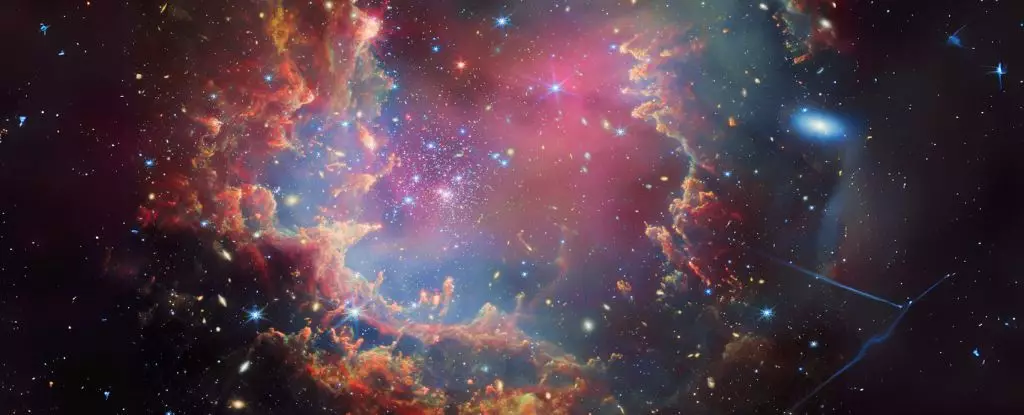In an astonishing twist to our understanding of cosmic evolution, recent studies suggest that the building blocks of water emerged in the Universe as early as 200 million years after the Big Bang. Though it was previously believed that the conditions necessary to form water were absent during this epoch due to a deficiency of heavier elements such as oxygen, new simulations paint a radically different picture. Such revelations challenge the very foundations of our knowledge, highlighting the nuances of a Universe that seems determined to surprise us. Cosmologist Daniel Whalen and his colleagues at Portsmouth University have pushed the boundaries of astrophysical simulations, igniting discussions on the implications of primordial water for the evolution of life itself.
Whalen’s team engaged in highly advanced simulations to recreate the explosive deaths of early stars, applying parameters reflective of the young Universe. The research revealed that these primordial stars—formed primarily from hydrogen and helium—could have given rise to the conditions necessary for water’s early formation. While the direct observation of these early stars has eluded astronomers for decades due to their rapid-burning qualities, advances in technology, such as the James Webb Space Telescope (JWST), may soon yield definitive evidence of their existence. Whalen’s simulations involved supernovae remnant cores from stars significantly more massive than our Sun, catalyzing the fusion of gases and oxygen required for molecular bond formation.
It is through such cataclysmic events that the Universe might have first experienced a wet environment. The temperatures and pressures during these supernova explosions were astronomical, triggering the synthesis of heavy elements. As gas clouds struck the cooling, they fostered the right conditions for hydrogen molecules to bond with oxygen. The cosmic dance of particles thus initiated, giving rise to the primordial water representative of what could later fuel life on planets millions of years hence.
The implications of water’s presence in primordial galaxies extend beyond mere chemistry; they signal vital shifts in the potential for life-sustaining environments. Although water was produced at a rate believed to be ten times less than what exists in our galaxy today, the possibility that habitable planets could have formed much earlier than previously thought opens up considerable avenues for speculative astrobiology. It compels us to rethink the timeline of life’s genesis within a cosmic framework, suggesting a universe that was “wet” and perhaps prepped for life long before we ever conceived of such a timeline.
What stands out in Whalen’s findings is the assertion that nurturing environments for water could be concentrated in the remnants of these supernova explosions. Thus, denser areas within the gas clouds could act as shielding havens where water might survive against universal radiation. This differential survival of water based on environmental conditions regions us toward the broader phenomenon of planetary formation, encapsulating a richer narrative in the galactic water cycle.
The research by Whalen and his colleagues challenges a prominent narrative in cosmology that has often downplayed the significance of water in the early universe. The idea that civilizations might find themselves surrounded by a swirling symphony of molecules capable of forming the seeds for life casts an optimistic light on our search for extraterrestrial environments. It curates an image of a Universe that is far more flawed than previously imagined—yet one that may still cradle the essence of life itself.
Moreover, the implications of this research resonate beyond astronomy into the realms of philosophy and ethics. For those of us who identify with center-wing liberalism, it compels us to reflect on our responsibilities toward our planet and its resources. If water, a precious commodity, could have originated under such unique cosmic conditions, how can we responsibly manage the ecosystems on Earth that potential life forms elsewhere might depend on?
As humanity ventures deeper into the mysteries of cosmos, the notion of life not being an accident of biology but rather a consequence of cosmic conditions is a narrative we must consider. Thus, rather than merely observing the stars, we are left to ponder the complex web connecting us intrinsically to the universe—woven through the elemental streams that coursed through it from inception. Such thoughts render us not as mere spectators in the grand cosmic theater, but as integral participants in an ongoing story that intertwines our fate with that of the Universe itself.


Leave a Reply